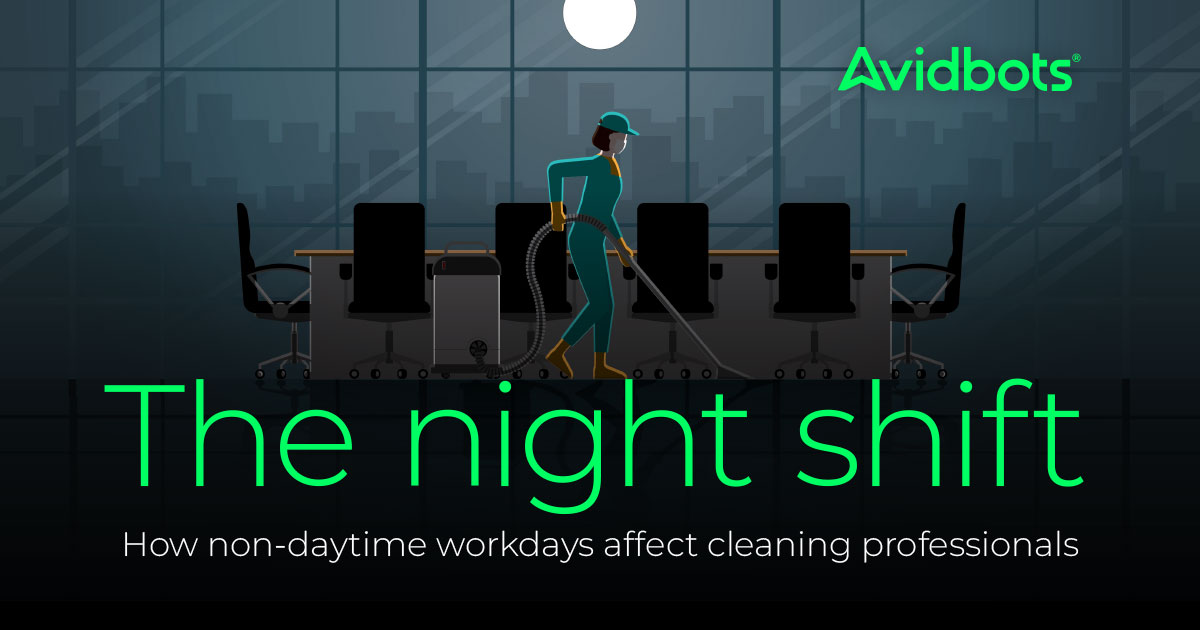
How non-daytime workdays affect cleaning professionals
Custodial workers perform dirty, demanding, and sometimes dangerous jobs daily. They receive little fanfare despite the importance of their work. Before the pandemic, the vital role they played in keeping facilities clean and safe flew under the radar.
Although no longer underappreciated, cleaning professionals still spend a sizable part of their workdays away from the public eye. While this is a necessity in some facilities because activity obstructs cleaning during active hours, it’s a one-way relationship; what’s convenient for an organization is anything but for those forced to work non-day shifts.
Although cleaning professionals may be out of sight for some of us, they shouldn’t be out of mind. The plight of custodial workers who routinely work varied shifts carries a significant human cost: to their physical health, their mental wellbeing, and their social and family lives.
These negative consequences were just a few of the key findings from a survey on how non-daytime workdays negatively affect custodial workers.
In a report by Jarrow Insights on behalf of UNI Global union and UNI Europa, two organizations representing millions of service workers across the globe, the survey examined the health and social effects of off-hours custodial work.
Surveying over 2500 respondents across 32 countries and six continents, cleaning professionals who work hours other than the day shift fare significantly worse across numerous metrics.
Here are the key findings, and how an automatic floor cleaner machine like Neo can help ease some of the burden.
Ever-changing schedules, long working hours, and multiple jobs
A standard day shift for custodial workers begins at 8-9 a.m. and ends at 5-6 p.m. — but only for 30.3% of respondents.
In an average month, most cleaners work shifts spread across multiple times of the day. What’s more, only half of respondents consistently receive the same working hours.
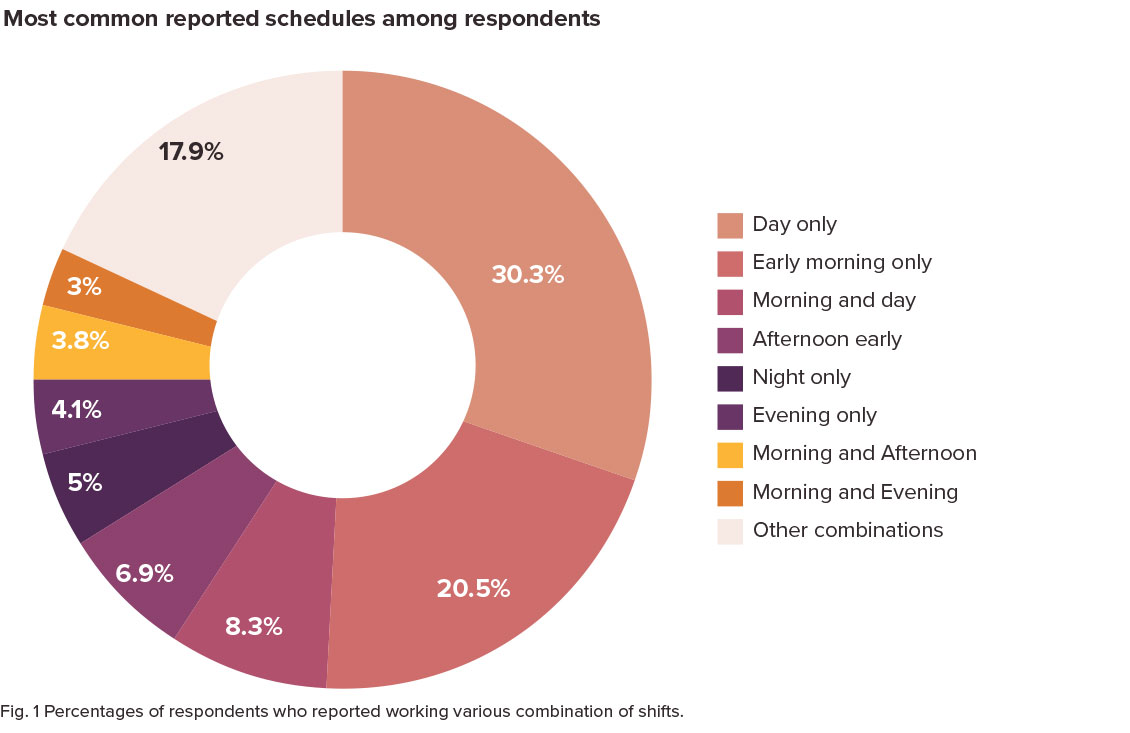
Source: UNI Global Union
Two to three different shift combinations are commonplace within the cleaning services industry. This statistic is alarming, especially since more than a quarter work more than 40 hours per week and 26.2% juggle multiple jobs. In fact, this latter group is 30% more likely to work longer than 40 hours per week.
When these working conditions are the norm, it doesn’t take long for one’s health to feel the effects.
Non-daytime workers suffer health consequences
Sleep deprivation, bad eating habits, poor mental health, and increased risk of substance abuse all have one thing in common: varied, unpredictable working hours.
For workers on night shifts, this is especially problematic. Whereas 30% of day-shift cleaners report too little sleep, this more than doubles for cleaners who work at night, with 70% reporting they don’t get enough sleep.
While night-shift workers suffer the most, more than half of those who work early morning and evening shifts also report inadequate levels of sleep. Considering the physical demands of custodial work and the well-researched links between sleep and physical recovery, this is a recipe for disaster.
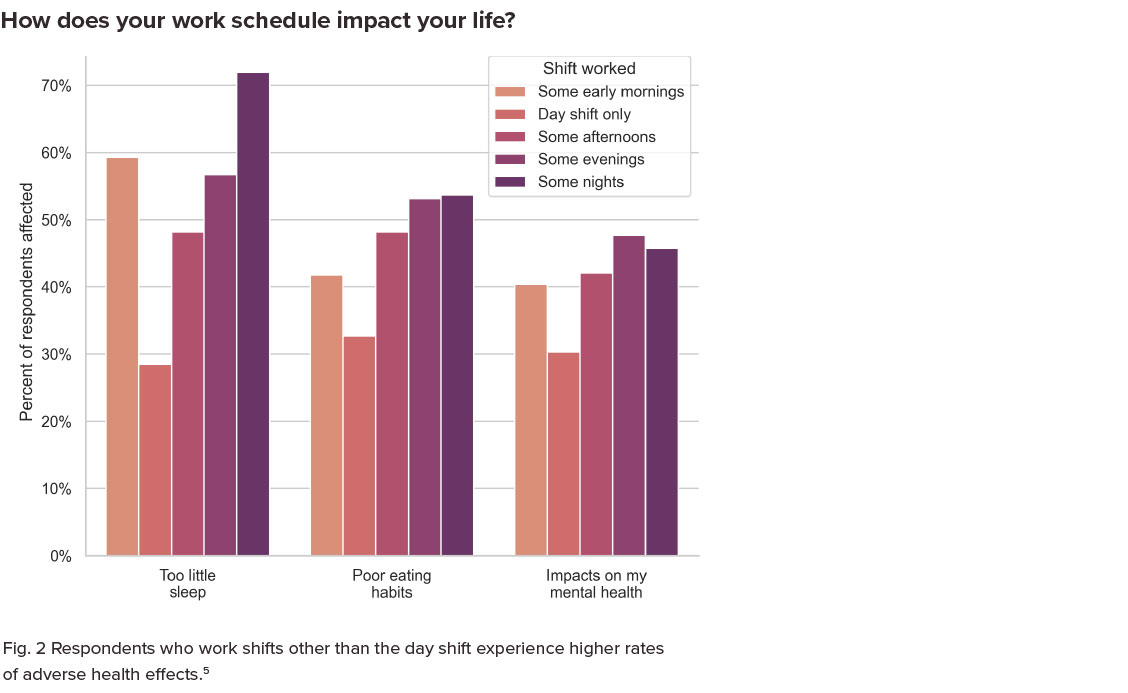
Source: UNI Global Union
Naturally, the health effects of off-hours work rear their ugly heads across many other areas as well.
More than half of evening and night workers report poor nutritional habits. The ability to prepare fresh, healthy meals is difficult when someone doesn’t have the time, never mind when they're perpetually tired.
Both healthy sleep and dietary patterns rely on rhythm and routine, but this can be impossible in the cleaning professions. Under these circumstances, it should come as little surprise that substance abuse rates more than double for night workers versus their peers.
This trend echoes across mental health issues too. While 30.3% of day-shift cleaners cited poor mental health because of difficult work schedules, the numbers jump to 46% and 48% for night and evening cleaners, respectively.
Watching their family and social live pass them by
Personal relationships with friends and family keep us emotionally and psychologically healthy. When we need to unwind, decompress, have fun, and more, we turn to others; it’s human nature.
However, all relationships require commitment, an investment of our time and attention. Anyone who works standard hours understands the value of work-life balance, and how having that cushion at the end of our workday is an oasis.
Sadly, this doesn’t exist for cleaners who work evening and night shifts. Both groups are nearly twice as likely as their day-shift counterparts to say their work hours disrupt their family and social lives.
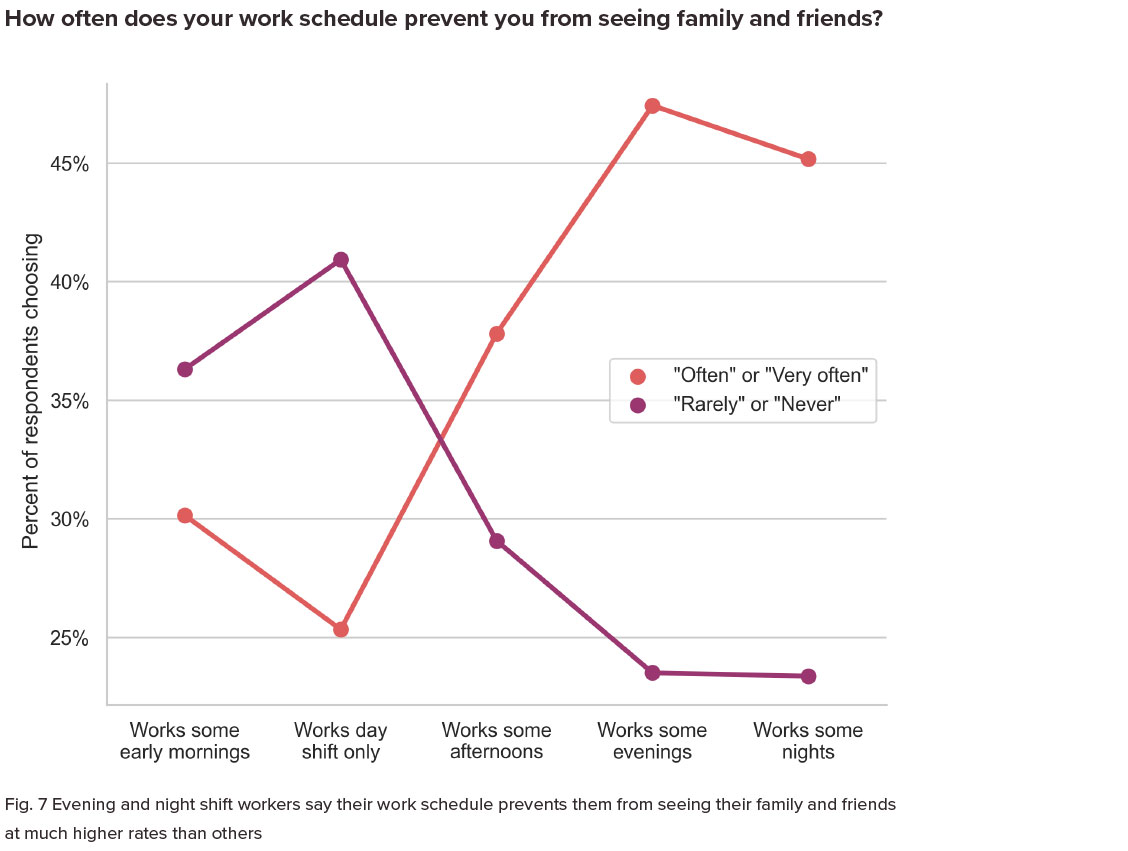
Source: UNI Global Union
Why do cleaners work varied shifts?
Given the detrimental impact of shift work on physical, mental, and emotional well-being, why do cleaners continue to work disruptive hours?
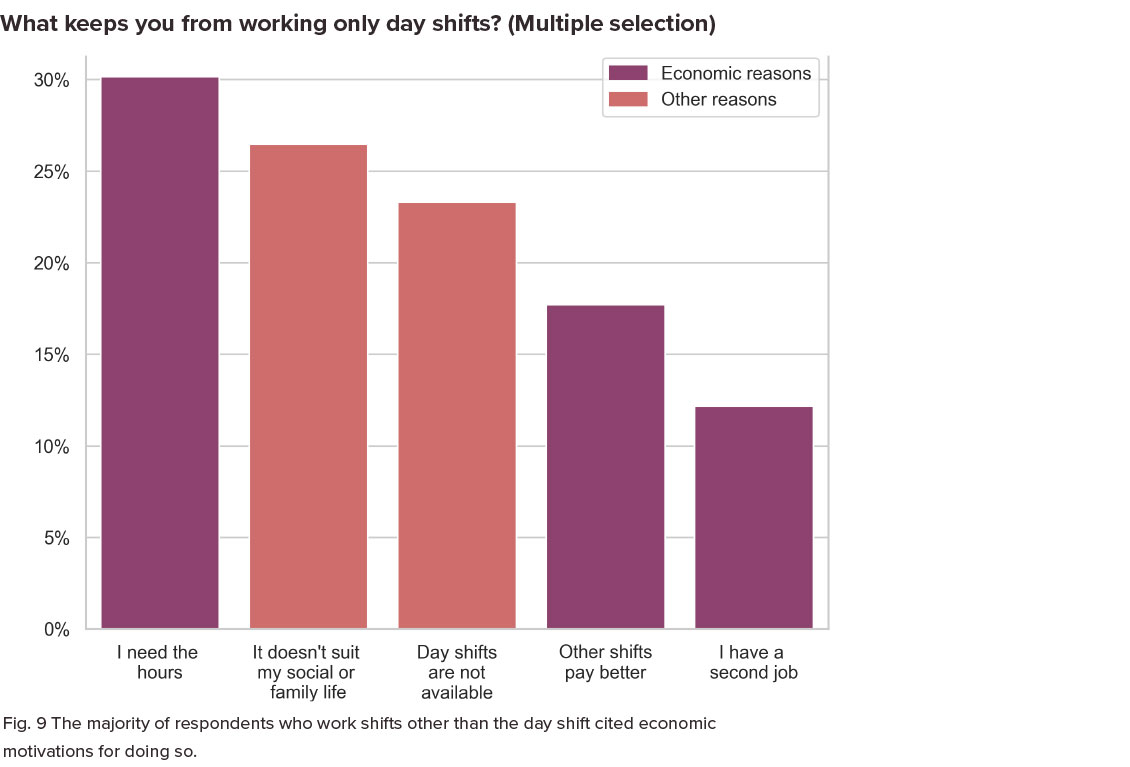
Source: UNI Global Union
Unsurprisingly, for over half of cleaners it’s a matter of financial security. Inflation has driven the cost of living through the roof. The extra hours help them pay their bills, and off-hour shifts also tend to offer higher wages because that time slot is the least desirable.
As the report notes, opting to work strange hours out of economic concern is less of a choice and more of a necessity. When combined with respondents who cited a lack of available day shifts, 68.4% have no choice when they want to work.
The same is true of those who responded that day shifts don’t suit their family and social lives. At face value, this seems counterintuitive; earlier results show the negative consequences of non-daytime work hours on family and social lives.
However, this is because night shifts allow parents and caregivers to look after their loved ones during the day, alternating with their partners when one is away at work. Once again, a necessity, not a choice.
Neo: A worker-friendly solution for floor cleaning
A shift to daytime-only cleaning will take time, but that doesn't mean organizations can’t help cleaning staff in the meantime.
When it comes to cleaning floors and disinfecting surfaces, two technologies combine to improve productivity, lower fatigue, and lessen the demands on custodial staff: robotics and automation.
Cleaning automation can eliminate the need for night cleaners to manually scrub the floors in specific facilities. And for many others, it can improve working conditions and decrease their workload.
Neo, the fully autonomous cleaning robot, automates the dirty, demanding, and time-consuming chore of scrubbing floors and disinfecting surfaces — so your employees don’t have to.
Avidbots’ solution opens new possibilities for your business. With Neo on your team, your facility meets its cleaning goals without the associated physical toll on its cleaning staff.
Indeed, you can schedule your cleaning operations at a time that is convenient for both your organizations’ and your custodial crews’ needs — and save time and resources while doing so.
If improving cleaning quality within your facility alongside a happier, healthier, and less stressed custodial team are goals you’re looking to achieve, Neo can help.
Related articles
Subscribe to the Avidbots blog!
Stay in the know about all things Avidbots plus the latest industry and technology insights.